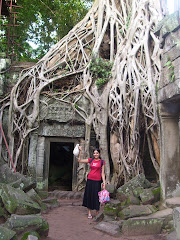Title
of book: Celestial Bodies
Author:
Jokha Alharthi
Date
of Review: November 17, 2019
I got this book second hand from the ‘Bookworm’, a
book store on Church Street in Bangalore. When I was picking out the books,
another customer (probably American judging from his accent and openness) said
to me, "This is a great book. I just read it.” He repeated it a couple of
times. I said thanks. I do want to read this one.
This was originally written in Arabic and translated
by Marilyn Booth. They won the Booker prize together for this work. It is
believed to be the first book from an Omani author that has gained recognition
around the world. I got to know several things about Oman’s history and
culture. As has been often mentioned with respect to this book, slavery was
prevalent there till the 1970s and several characters in this book are slaves
or closely related to them. The book revolves around three families and their
family tree is given at the start of the book. I had to keep referring to this
family tree repeatedly to make sense of the relations. The chapters are short
but still encapsulate the context and feelings quite intensely. I found the
writing very skillful and concise.
One of the main families in this book has three
daughters- Mayya, Asma, and Khawla. My favorite chapters are the one written by
Abdallah, who is the husband of Mayya. He describes his father (Sulayman the
merchant who kept a lot of slaves), who has terrorized him in his childhood,
hanging him upside down in a well once when he disobeyed him, his foster mother
(Zarifa, the slave), and his wife, Mayya. There is perennial longing in his
voice. He is intensely attached to his father and lives in terror of the
latter’s demise for six years when he falls ill and finds no relief when he
passes away even as he expected to. He longs intensely for the love of his
wife, who is indifferent to him. Some of Abdallah’s observations are astute. He
describes beautifully the laughter of his wife when he asks her if she loves
him. “Loud enough to shatter every wall
in the new house. Her laughter..the
children fled from it” (p. 12). In another chapter, he says that the
intelligence of a person can be guessed from the type of their smile. “His blue eyes gave nothing away but his
smile seemed promising. Before getting to know him I would never have imagined
that a person’s smile could reveal his intelligence but Bill’s smile gave form
to a shrewd mind” (p. 153). I never thought of this before. I could just
read Abdallah’s chapters again. His inner life is provided with a lot of detail
especially since he is the only one narrating it. Others are in third person
and therefore always a bit distant. Mayya’s father Azzan is a romantic figure
who recites poetry and is intensely involved with an independent Bedouin woman
called Qamar (the moon in Arabic/Urdu- reminded me of the Rahat Fateh Ali
Khan…mere rashke qamar).
Mayya is initially shown intensely (and quietly) longing
for just the sight of a man she has met briefly. Soon after, a proposal of
marriage comes from Abdallah. There is no overt force but she agrees to marry
him. She seems to have suppressed her feelings after her marriage. She is
extremely quiet. Prefers silences to conversations. She also loves sleeping
most of the time. I sense that she may be depressed. One of their sons has
autism, which is devastating for her. There are several characters in this book
who are suffering from mental health issues, including psychosis, depression,
and kleptomania.
One of the major themes of this book is the
suppression of women and the timid men (mainly Abdallah). They have practically
no agency most of the time, though Khawla refuses to marry one of the guys and
is not forced by her father, Azzan. The women slaves are especially treated
abominably by their owners and their sons. One of these women gives birth to a
girl and does not know who the father is since there are three men in that
household who have been abusing her. She says it could be either one of them.
She is the one who is given the lashings, according to the sharia. Mayya’s mother
Salima and her siblings are forced to live with her wealthy and influential
paternal uncle and not her mother and maternal uncle, when she loses her father
because they are considered the father’s side property. Salima remembers her
childhood with intense hunger, since she is always aware of her aunt’s eyes on
her and cannot dare to eat to her heart’s content. She is better off than the
slaves in their households but she even envies them with their free laughter
and movement.
There are several memorable parts of this book which
leave an impression. Ultimately it is mix of the cultural and historical influences
(slavery and the changing times) and universal themes of patriarchy, love, loss
and longing.
Recommended?
I highly recommend this book. I continue to think about the characters and they
evoked sympathy. It is a short book but Jokha Alharthi managed to convey a lot
of emotions (love, hate, jealousy, pride and more), history, and subtle
interactions in few words which are insightful and evocative.












No comments:
Post a Comment